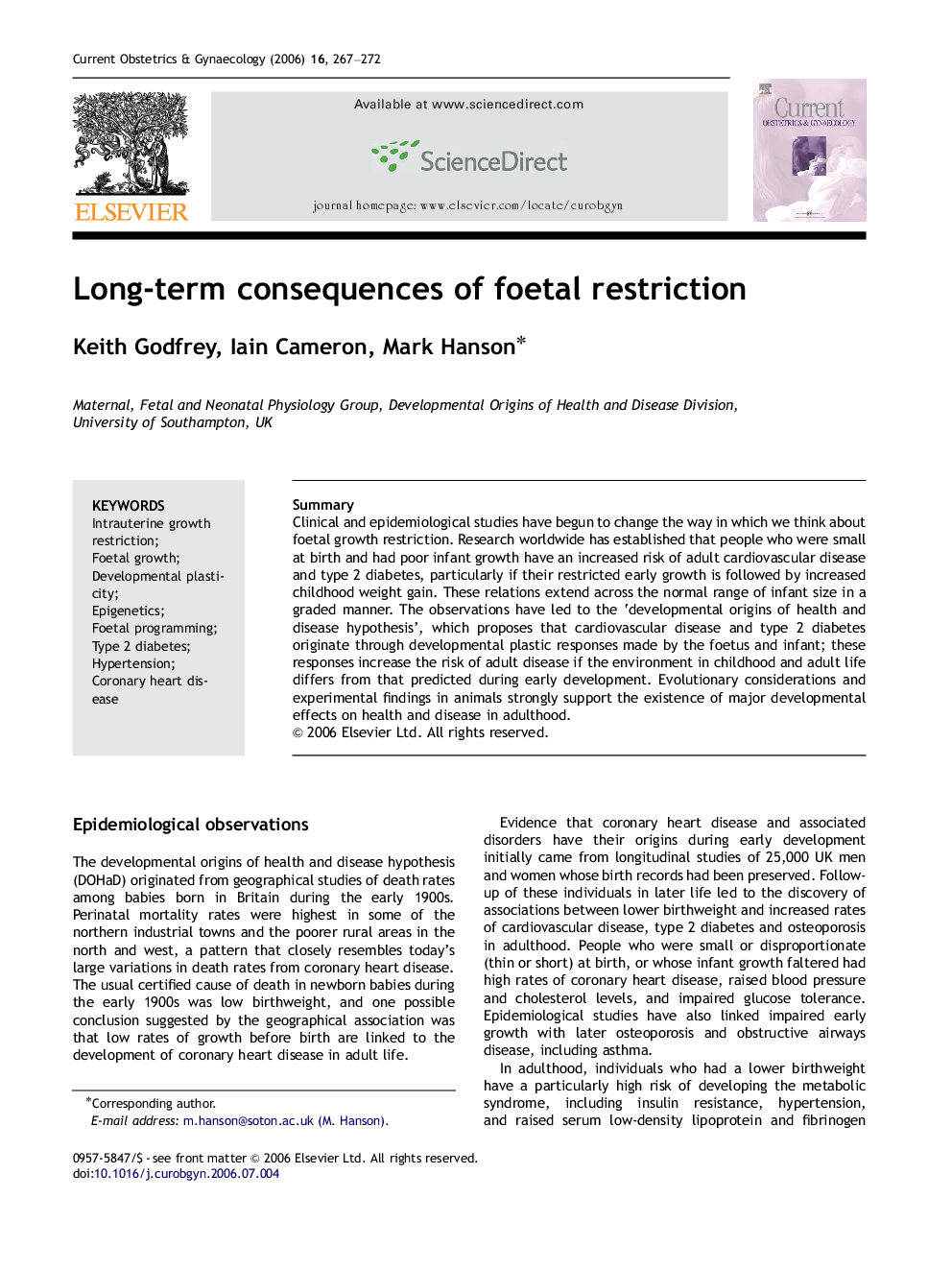| Article ID | Journal | Published Year | Pages | File Type |
|---|---|---|---|---|
| 3916309 | Current Obstetrics & Gynaecology | 2006 | 6 Pages |
SummaryClinical and epidemiological studies have begun to change the way in which we think about foetal growth restriction. Research worldwide has established that people who were small at birth and had poor infant growth have an increased risk of adult cardiovascular disease and type 2 diabetes, particularly if their restricted early growth is followed by increased childhood weight gain. These relations extend across the normal range of infant size in a graded manner. The observations have led to the ‘developmental origins of health and disease hypothesis’, which proposes that cardiovascular disease and type 2 diabetes originate through developmental plastic responses made by the foetus and infant; these responses increase the risk of adult disease if the environment in childhood and adult life differs from that predicted during early development. Evolutionary considerations and experimental findings in animals strongly support the existence of major developmental effects on health and disease in adulthood.
